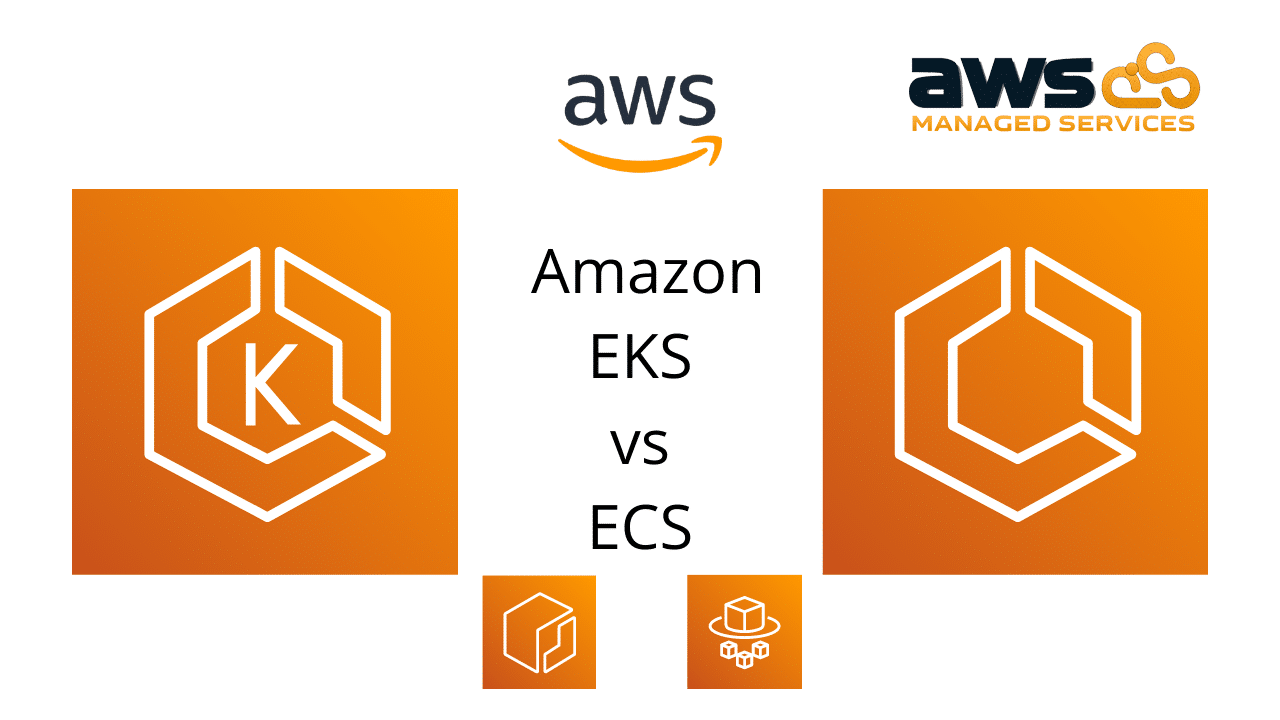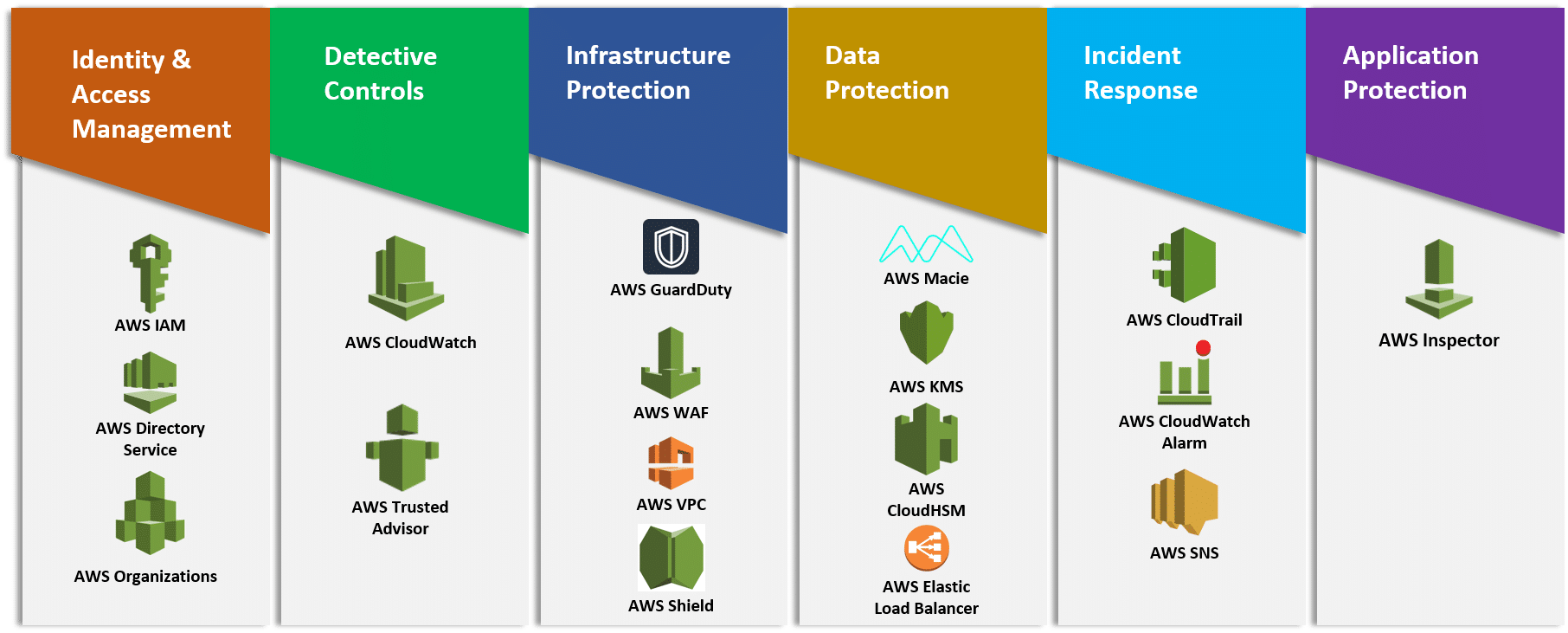15 Feb

Introduction
Amazon Web Services (AWS) offers two popular container orchestration services: Amazon Elastic Kubernetes Service (EKS) and Amazon Elastic Container Service (ECS). Both services enable users to deploy, manage, and scale containerized applications, but they differ in their architecture and approach to container orchestration.
Amazon EKS
Amazon EKS is a managed Kubernetes service that enables users to deploy and manage Kubernetes clusters on AWS. Kubernetes is an open-source container orchestration platform that automates the deployment, scaling, and management of containerized applications. EKS simplifies the process of setting up and managing a Kubernetes cluster, allowing users to focus on their applications rather than the underlying infrastructure. EKS is a good choice for users who prefer the flexibility and configurability of Kubernetes, as well as for those who are already familiar with Kubernetes.
Amazon ECS
On the other hand, Amazon ECS is a fully managed container orchestration service that supports Docker containers. Unlike Kubernetes, ECS does not require any additional management overhead, as AWS handles the underlying infrastructure for users. ECS allows users to easily run and manage Docker containers at scale, without having to worry about the underlying infrastructure. ECS provides a simple and intuitive interface for users to deploy and manage their containers, making it a good choice for users who want a simple and easy-to-use container orchestration service.
Architecture
One of the critical differences between EKS and ECS is their architecture. EKS uses Kubernetes, which is an open-source platform that is highly extensible and configurable. This allows users to customize their Kubernetes clusters to meet their specific needs and requires more management overhead. ECS, on the other hand, is built on top of AWS services, which means that it is tightly integrated with other AWS services and has a simpler architecture.
Pricing
Another difference between EKS and ECS is their pricing model. EKS charges users for the underlying EC2 instances used to run their Kubernetes clusters, as well as for the EKS service itself. ECS, on the other hand, charges users only for the resources used by their containers, such as CPU and memory. This makes ECS a more cost-effective option for users who run many small containers.
When to EKS
EKS is a good choice when you need a highly configurable and flexible container orchestration service to deploy, manage, and scale containerized applications on AWS. Here are some specific situations in which EKS might be the best choice:
- You are already using Kubernetes: If you are already familiar with Kubernetes and have experience using it to manage containerized applications, EKS may be the most natural choice for you. EKS is a managed Kubernetes service that simplifies the process of setting up and managing a Kubernetes cluster on AWS.
- You need to run large, complex applications: If you are running large, complex applications that require advanced features like horizontal scaling, rolling updates, and service discovery, EKS may be a better choice than Amazon ECS. Kubernetes has a more sophisticated feature set than ECS, making it more suitable for large and complex applications.
- You need fine-grained control over the infrastructure: If you need fine-grained control over the underlying infrastructure that runs your Kubernetes cluster, EKS allows you to customize and configure your cluster to meet your specific needs. This gives you more control over the performance, security, and availability of your applications.
- You need to deploy across multiple cloud providers: EKS is designed to work seamlessly with other AWS services, but it can also be used to deploy and manage containerized applications across multiple cloud providers. This allows you to maintain a consistent deployment experience across multiple cloud environments.
When to ECS
ECS is a good choice when you need a simple and easy-to-use container orchestration service that provides seamless integration with other AWS services. Here are some specific situations in which ECS might be the best choice:
- You are already using Docker: If you are already using Docker to package and deploy your applications, ECS may be the most natural choice for you. ECS is a fully managed container orchestration service that natively supports Docker containers and makes it easy to deploy and manage your containers at scale.
- You need to run small to medium-sized applications: If you run small to medium-sized applications that do not require complex features like service discovery, automatic scaling, and self-healing, ECS may be a better choice than Amazon EKS. ECS provides a simple and intuitive interface for deploying and managing your containers, making it easier to get started with containerization.
- You need seamless integration with other AWS services: ECS is designed to work seamlessly with other AWS services, such as Amazon Elastic Load Balancing, Amazon CloudWatch, and Amazon Identity and Access Management (IAM). This allows you to take advantage of the full range of AWS services to build and operate your applications.
- You need cost-effective container orchestration: ECS is a cost-effective option for running large-scale containerized applications. Unlike EKS, which charges users for the underlying EC2 instances used to run their Kubernetes clusters, ECS charges users only for the resources used by their containers, such as CPU and memory. This makes it a more cost-effective option for users who run many small containers.
Conclusion
In summary, Amazon EKS and Amazon ECS are powerful container orchestration services that enable users to deploy, manage, and scale containerized applications on AWS. EKS is a good choice for users who prefer the configurability and flexibility of Kubernetes. At the same time, ECS is a good choice for users who want a simple and easy-to-use container orchestration service. Ultimately, the choice between EKS and ECS will depend on a user’s specific needs and preferences.



